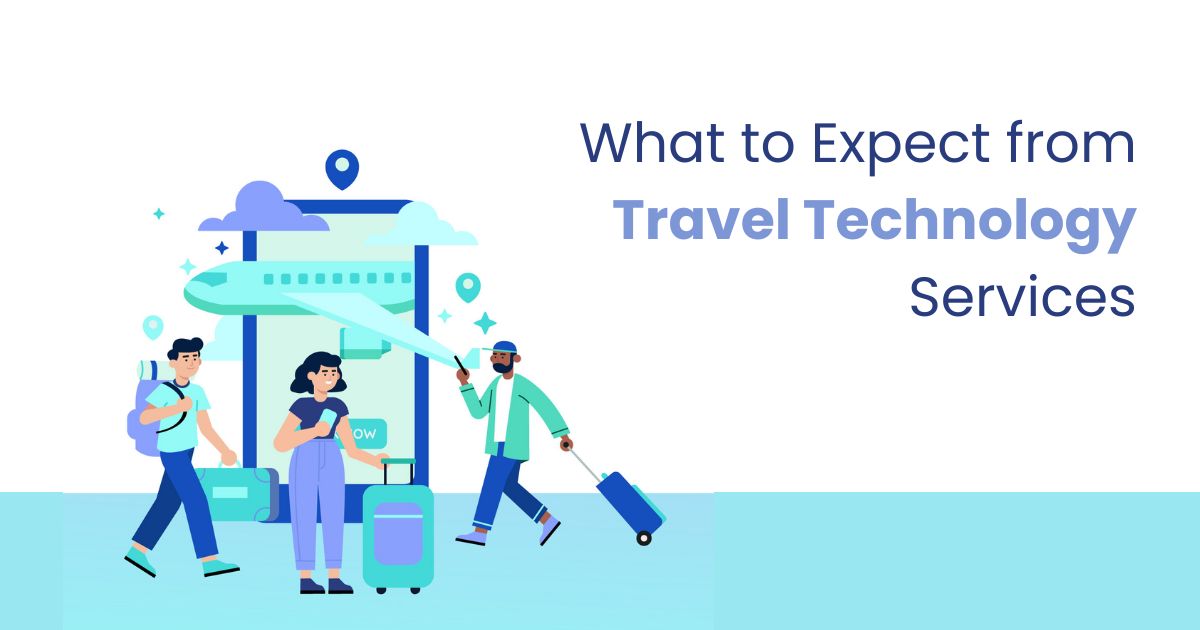Successful travel companies understand the nuances of the market and come up with creative ways to differentiate themselves from the competition. It’s not enough to just book flights and lodgings in this fast-paced world. True mastery frequently results from experience and insider knowledge, even when academic degrees may offer a foundation. This article will explore the seven strategies used by prosperous travel businesses to survive in a cutthroat market.
Travel Technology Solutions: Enhancing Your Travel Journey with Advanced Technology Solutions1. Building Strong Industry Relationships: The Foundation of Success
Developing robust relationships within the travel industry is paramount for a travel agency’s success. From airlines to hotels, tour operators to local guides, forging strong partnerships can unlock exclusive deals, perks, and insider information that benefit both the agency and its clients.
- Networking Beyond Borders: Effective networking extends beyond local boundaries. Attend industry events, trade shows, and conferences not only in your area but also internationally to expand your network.
- Nurturing Relationships: Building trust and rapport with industry partners takes time and effort. Regular communication, personalized interactions, and delivering on promises are key to nurturing these relationships.
- Exclusive Partnerships: Seek out exclusive partnerships with hotels, airlines, and other service providers. These arrangements can lead to preferential treatment for your clients and unique offerings that set your agency apart.
2. Leveraging Technology: Streamlining Operations and Enhancing Customer Experience
In today’s digital age, leveraging technology is essential for travel agencies to streamline operations and enhance the customer experience.
- Online Booking Platforms: Invest in user-friendly online booking platforms that offer convenience and flexibility to clients. These platforms should provide comprehensive information, secure payment gateways, and seamless booking processes.
- CRM Systems: Implement Customer Relationship Management (CRM) systems to manage client interactions, preferences, and feedback effectively. Personalized communication based on client data can significantly enhance customer satisfaction and loyalty.
- Data Analytics: Utilize data analytics tools to gain insights into booking trends, customer behavior, and market dynamics. This information can inform strategic decision-making, marketing campaigns, and product offerings.
3. Embracing Niche Markets: Finding Your Specialization
Instead of trying to cater to everyone, successful travel agencies often carve out a niche market for themselves. By specializing in a particular type of travel experience or demographic, agencies can differentiate themselves and attract a loyal clientele.
- Identifying Your Niche: Conduct market research to identify underserved or emerging niche markets that align with your agency’s strengths and interests. This could include adventure travel, luxury cruises, eco-tourism, or family vacations.
- Becoming Experts: Position your agency as an expert in your chosen niche by offering specialized knowledge, curated experiences, and customized itineraries. This expertise builds trust and credibility among your target audience.
- Tailored Marketing Strategies: Develop tailored marketing strategies to reach your niche market effectively. This may involve partnering with niche publications, influencers, or participating in niche-specific events and forums.
4. Providing Exceptional Customer Service: Going Above and Beyond
Exceptional customer service is the cornerstone of a successful travel agency. In an industry where experiences are highly personalized, the way you treat your clients can make all the difference.
- Personalized Experiences: Take the time to understand your clients’ preferences, interests, and needs. Offer personalized recommendations, surprise upgrades, and thoughtful gestures to enhance their experience.
- 24/7 Support: Provide round-the-clock customer support, especially for clients traveling to different time zones or facing emergencies. Offering a dedicated hotline or chat support can reassure clients and address any concerns promptly.
- Post-Trip Follow-Up: Follow up with clients after their trip to gather feedback, address any issues, and thank them for their business. This not only strengthens your relationship with the client but also provides valuable insights for future improvements.
5. Mastering Marketing and Branding: Standing Out in a Crowded Market
In a crowded marketplace, effective marketing and branding are essential for travel agencies to differentiate themselves and attract clients.
- Compelling Brand Story: Develop a compelling brand story that resonates with your target audience. Highlight your agency’s unique selling points, values, and vision to connect with clients on an emotional level.
- Visual Identity: Invest in professional branding elements such as logos, color schemes, and website design that reflect your agency’s personality and appeal to your target demographic.
- Content Marketing: Create engaging content, such as blog posts, travel guides, and social media posts, to showcase your expertise and attract potential clients. Share user-generated content and testimonials to build trust and credibility.
6. Staying Agile: Adapting to Changing Trends and Circumstances
The travel industry is dynamic and subject to various external factors, from changing consumer preferences to global events. Successful travel agencies stay agile and adaptable to navigate these fluctuations effectively.
- Monitoring Trends: Stay informed about industry trends, market dynamics, and emerging destinations. Anticipate shifts in consumer behavior and adapt your offerings accordingly to stay ahead of the curve.
- Flexibility in Operations: Build flexibility into your operations to accommodate last-minute changes, cancellations, or unforeseen circumstances. This may involve flexible booking policies, alternative itineraries, or contingency plans.
- Crisis Management: Develop robust crisis management protocols to address emergencies, natural disasters, or geopolitical events that may impact travel plans. Communicate proactively with affected clients and provide support and guidance during challenging times.
7. Investing in Continuous Learning and Development: Staying Ahead of the Game
Continuous learning and professional development are vital for travel agencies to stay competitive and relevant in a rapidly evolving industry.
- Industry Certifications: Pursue relevant industry certifications and accreditations to demonstrate your expertise and credibility to clients. This could include certifications from organizations such as IATA (International Air Transport Association) or ASTA (American Society of Travel Advisors).
- Training and Workshops: Invest in ongoing training and workshops for your staff to enhance their skills, product knowledge, and customer service abilities. Encourage a culture of learning and innovation within your agency.
- Networking and Collaboration: Engage with industry peers, attend workshops, and participate in collaborative projects to exchange ideas, best practices, and industry insights. Learning from others in the field can inspire creativity and drive innovation within your agency.
Conclusion:
Success in the highly competitive travel sector requires not only planning trips but also learning the nuances of the field and coming up with unique strategies to differentiate yourself from the competition. Travel agencies can position themselves for long-term success and thrive in an ever-evolving market by embracing these seven secrets: mastering marketing and branding, staying agile, embracing niche markets, leveraging technology, building strong industry relationships, staying flexible, and investing in continuous learning and development.








